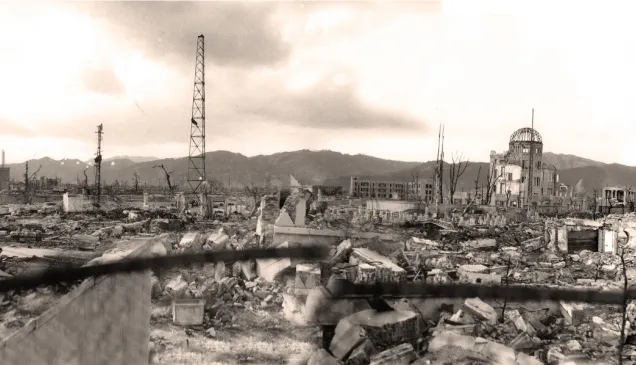Geneva/New York (IFRC/ICRC) – On the occasion of this year's International Day for the Total Elimination of Nuclear Weapons, the International Red Cross and Red Crescent Movement renews its call on States to begin negotiations on a treaty to prohibit the use of and completely eliminate nuclear weapons, in accordance with their existing commitments.
This call comes during the annual session of the United Nations General Assembly in New York, which may decide to convene a conference in 2017 to negotiate a treaty to prohibit nuclear weapons, leading to their total elimination. In doing so, they would be acting on the recommendation made in August by a United Nations Working Group on nuclear disarmament with the wide-spread support of States.
For the first time in over 70 years, a ban on nuclear weapons could become a reality.
"I call on all States to seize this opportunity," said the President of the International Committee of the Red Cross, Peter Maurer. "The time has come for world leaders to show leadership on this issue. We need to rid the world of nuclear weapons once and for all. Until we do, the potential for the intentional or accidental use of nuclear weapons remains as does the risk of the catastrophic and long-lasting consequences that nuclear weapons can have: on human health, the environment, climate, food production and socio-economic development. Ridding the world of nuclear weapons is a humanitarian imperative."
"History has shown us that the humanitarian consequences of nuclear weapons – of even one nuclear weapon - are horrific beyond words, and can last for decades," said the President of the International Federation of Red Cross and Red Crescent Societies, Tadateru Konoé. "More than 70 years after the atomic bombs were dropped on Hiroshima and Nagasaki, doctors at the Japanese Red Cross Society hospitals in the two cities are still treating many thousands of survivors who are struggling with long-term health effects."
"Most nuclear weapons in today's arsenals are many times more powerful and destructive than those used in 1945," Mr. Konoé said. "The effective delivery of humanitarian assistance in the wake of an attack would be close to impossible and no international plans seem to be in place for this eventuality."
The International Red Cross and Red Crescent Movement made an historic appeal in 2011, building upon calls made since 1945, for the prohibition and elimination of nuclear weapons.
For more information, please contact:
Iolanda Jaquemet, communications officer, ICRC
E-mail: ijaquemet@icrc.org ¦ Mobile: +41 79 217 32 87
Ernesto Granillo, advisor and spokesperson, ICRC
E-mail: egranillo@icrc.org ¦ Mobile: +1 917 231 6583
Benoit Carpentier, team leader – public communications, International Federation
E-mail: benoit.carpentier@ifrc.org ¦ Twitter: @BenoistC ¦ Mobile: +41 79 213 2413



